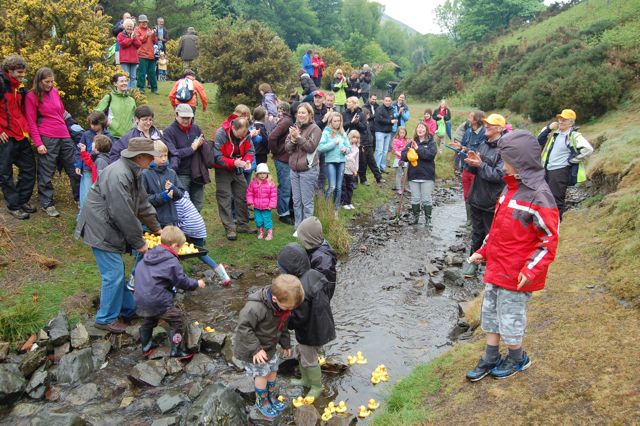First, the good news: The BBC has – at last – decided that climate change is really happening and it’s no longer necessary to dredge up the odd whacko to ‘give balance’. Yes, folks, it’s no longer necessary to balance a 2-0 football result by finding someone who thinks it’s not a result but a conspiracy by the Chinese.
The dear old Beeb may have been driven to this by the collective decision of climate experts to refuse to take part in any more so-called ‘debates’, or perhaps the hottest UK summer on record, or perhaps the mountain of I Told You So data that has confirmed the predictions since 1970. We should, perhaps, be grateful for small mercies; fingers crossed, we may no longer need to suffer the Global Warming Policy Foundation’s latest bit of rubbish every time the obvious is raised.
Second, the bad news: climate change is moving faster than we are. Several years ago, former IPCC chair Sir John Houghton, speaking in Church Stretton, warned us we only had a few years to get to grips with it. His deadline was 2015. Now, the UN Secretary General has warned that if we don’t change course by 2020, “we risk missing the point where we can avoid runaway climate change”. Even if every nation meets every one of its pledges under the Paris Agreement, we’ll fry..
Third, the really bad news. We don’t want to talk about it. In fact, we don’t even want to talk about not wanting to talk about it. The Stretton Climate Care executive met with our MP recently. We had a polite discussion as we always do, and we made our points on various topics but in the end we agreed to differ on issues like fracking and divestment from fossil fuels as if it was a matter of opinion, not the future of the human race. That’s the problem. We are embarked upon the sixth mass extinction in the planet’s history; the human race could well be organising an environmental disaster that will take billions of years to recover from. In 1970, Earth Overshoot Day (the day when we go into overdraft, when our consumption exceeds the earth’s ability to recover from it) was 29 December. This year, it was 1st August. But what is important is economic growth…
As a species, we have uniquely developed the ability to recognise all this, and we have – also uniquely – the intellectual resources to develop a solution to it. Unfortunately, we appear to lack the motivation. As Gus Speth put it, “I used to think that top environmental problems were biodiversity loss, ecosystem collapse and climate change. I thought that thirty years of good science could address these problems. I was wrong. The top environmental problems are selfishness, greed and apathy, and to deal with these we need a cultural and spiritual transformation. And we scientists don’t know how to do that.”
Will the rest of us find the way?
Tag. You’re it.



Comments
Leave a Reply